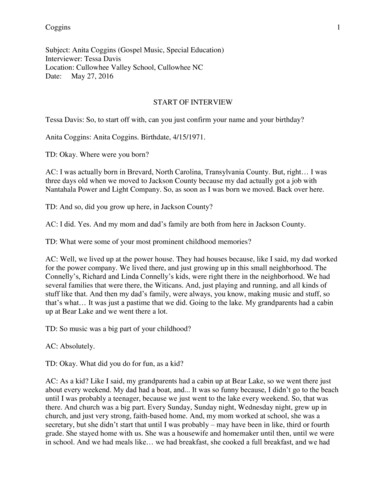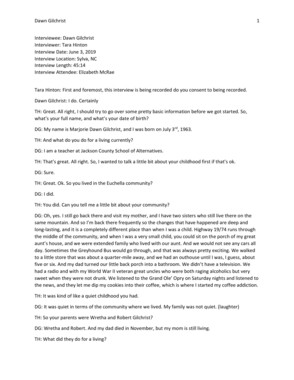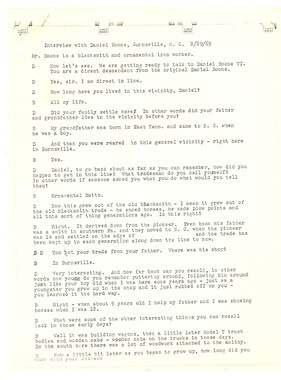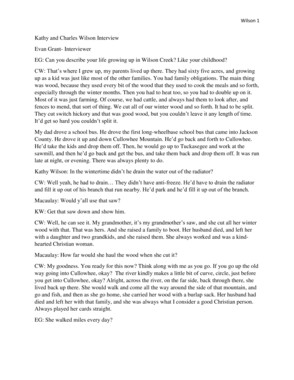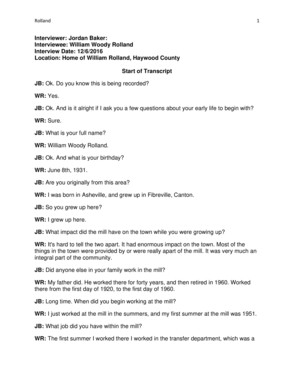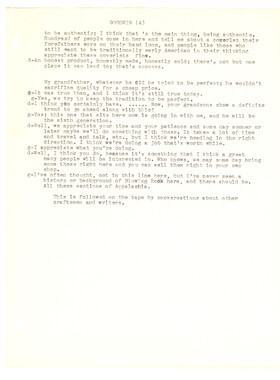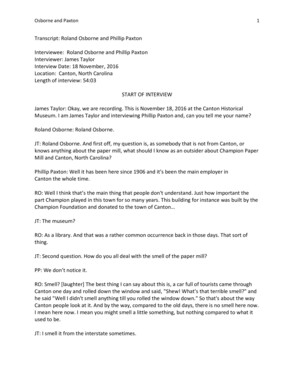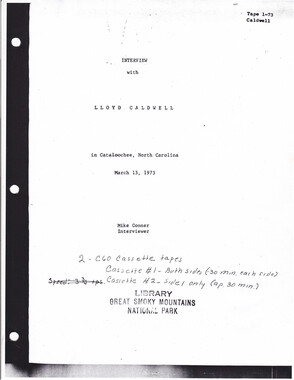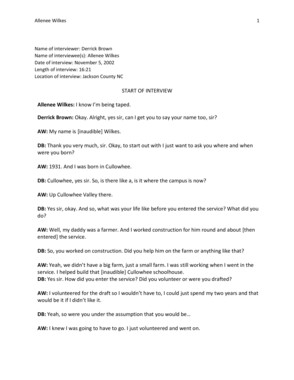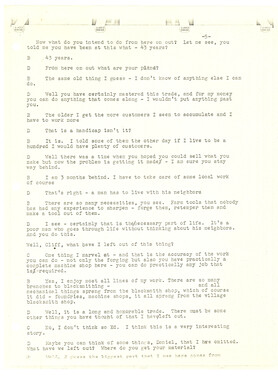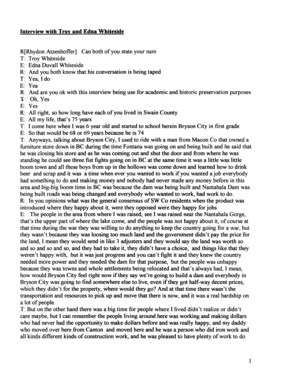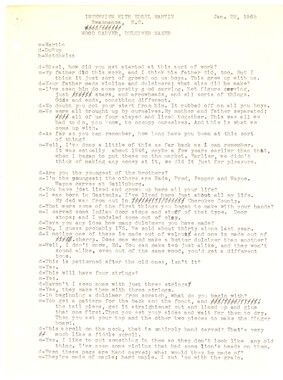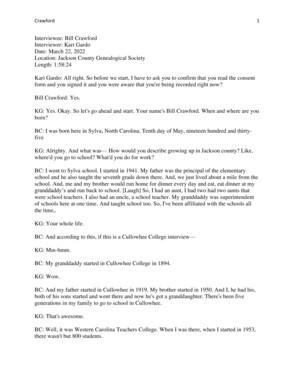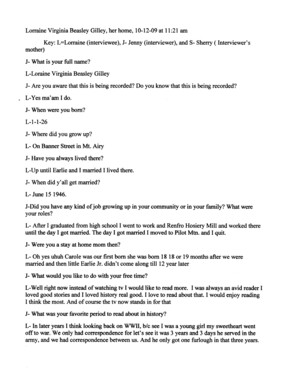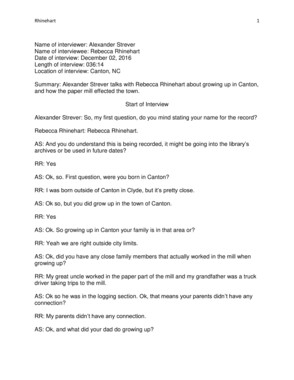Western Carolina University (20)
View all
- Canton Champion Fibre Company (2308)
- Cherokee Traditions (291)
- Civil War in Southern Appalachia (165)
- Craft Revival (1942)
- Great Smoky Mountains - A Park for America (2857)
- Highlights from Western Carolina University (430)
- Horace Kephart (941)
- Journeys Through Jackson (159)
- LGBTQIA+ Archive of Jackson County (85)
- Oral Histories of Western North Carolina (314)
- Picturing Appalachia (6772)
- Stories of Mountain Folk (413)
- Travel Western North Carolina (160)
- Western Carolina University Fine Art Museum Vitreograph Collection (129)
- Western Carolina University Herbarium (92)
- Western Carolina University: Making Memories (708)
- Western Carolina University Publications (2353)
- Western Carolina University Restricted Electronic Theses and Dissertations (146)
- Western North Carolina Regional Maps (71)
- World War II in Southern Appalachia (131)
University of North Carolina Asheville (6)
View all
- 1700s (1)
- 1860s (1)
- 1890s (1)
- 1900s (2)
- 1920s (2)
- 1930s (5)
- 1940s (12)
- 1950s (19)
- 1960s (35)
- 1970s (31)
- 1980s (16)
- 1990s (10)
- 2000s (20)
- 2010s (24)
- 2020s (4)
- 1600s (0)
- 1800s (0)
- 1810s (0)
- 1820s (0)
- 1830s (0)
- 1840s (0)
- 1850s (0)
- 1870s (0)
- 1880s (0)
- 1910s (0)
- Appalachian Region, Southern (15)
- Asheville (N.C.) (11)
- Avery County (N.C.) (1)
- Buncombe County (N.C.) (55)
- Cherokee County (N.C.) (17)
- Clay County (N.C.) (2)
- Graham County (N.C.) (15)
- Great Smoky Mountains National Park (N.C. and Tenn.) (1)
- Haywood County (N.C.) (40)
- Henderson County (N.C.) (5)
- Jackson County (N.C.) (132)
- Knox County (Tenn.) (1)
- Macon County (N.C.) (17)
- Madison County (N.C.) (4)
- McDowell County (N.C.) (1)
- Mitchell County (N.C.) (5)
- Polk County (N.C.) (3)
- Qualla Boundary (6)
- Rutherford County (N.C.) (1)
- Swain County (N.C.) (30)
- Watauga County (N.C.) (2)
- Waynesville (N.C.) (1)
- Yancey County (N.C.) (3)
- Blount County (Tenn.) (0)
- Knoxville (Tenn.) (0)
- Lake Santeetlah (N.C.) (0)
- Transylvania County (N.C.) (0)
- Interviews (314)
- Manuscripts (documents) (3)
- Personal Narratives (8)
- Photographs (4)
- Portraits (2)
- Sound Recordings (308)
- Transcripts (216)
- Aerial Photographs (0)
- Aerial Views (0)
- Albums (books) (0)
- Articles (0)
- Artifacts (object Genre) (0)
- Bibliographies (0)
- Biography (general Genre) (0)
- Cards (information Artifacts) (0)
- Clippings (information Artifacts) (0)
- Copybooks (instructional Materials) (0)
- Crafts (art Genres) (0)
- Depictions (visual Works) (0)
- Design Drawings (0)
- Drawings (visual Works) (0)
- Envelopes (0)
- Exhibitions (events) (0)
- Facsimiles (reproductions) (0)
- Fiction (general Genre) (0)
- Financial Records (0)
- Fliers (printed Matter) (0)
- Glass Plate Negatives (0)
- Guidebooks (0)
- Internegatives (0)
- Land Surveys (0)
- Letters (correspondence) (0)
- Maps (documents) (0)
- Memorandums (0)
- Minutes (administrative Records) (0)
- Negatives (photographs) (0)
- Newsletters (0)
- Newspapers (0)
- Notebooks (0)
- Occupation Currency (0)
- Paintings (visual Works) (0)
- Pen And Ink Drawings (0)
- Periodicals (0)
- Plans (maps) (0)
- Poetry (0)
- Postcards (0)
- Programs (documents) (0)
- Publications (documents) (0)
- Questionnaires (0)
- Sayings (literary Genre) (0)
- Scrapbooks (0)
- Sheet Music (0)
- Slides (photographs) (0)
- Songs (musical Compositions) (0)
- Specimens (0)
- Speeches (documents) (0)
- Text Messages (0)
- Tintypes (photographs) (0)
- Video Recordings (physical Artifacts) (0)
- Vitreographs (0)
- WCU Mountain Heritage Center Oral Histories (25)
- WCU Oral History Collection - Mountain People, Mountain Lives (71)
- Western North Carolina Tomorrow Black Oral History Project (69)
- A.L. Ensley Collection (0)
- Appalachian Industrial School Records (0)
- Appalachian National Park Association Records (0)
- Axley-Meroney Collection (0)
- Bayard Wootten Photograph Collection (0)
- Bethel Rural Community Organization Collection (0)
- Blumer Collection (0)
- C.W. Slagle Collection (0)
- Canton Area Historical Museum (0)
- Carlos C. Campbell Collection (0)
- Cataloochee History Project (0)
- Cherokee Studies Collection (0)
- Daisy Dame Photograph Album (0)
- Daniel Boone VI Collection (0)
- Doris Ulmann Photograph Collection (0)
- Elizabeth H. Lasley Collection (0)
- Elizabeth Woolworth Szold Fleharty Collection (0)
- Frank Fry Collection (0)
- George Masa Collection (0)
- Gideon Laney Collection (0)
- Hazel Scarborough Collection (0)
- Hiram C. Wilburn Papers (0)
- Historic Photographs Collection (0)
- Horace Kephart Collection (0)
- Humbard Collection (0)
- Hunter and Weaver Families Collection (0)
- I. D. Blumenthal Collection (0)
- Isadora Williams Collection (0)
- Jesse Bryson Stalcup Collection (0)
- Jim Thompson Collection (0)
- John B. Battle Collection (0)
- John C. Campbell Folk School Records (0)
- John Parris Collection (0)
- Judaculla Rock project (0)
- Kelly Bennett Collection (0)
- Love Family Papers (0)
- Major Wiley Parris Civil War Letters (0)
- Map Collection (0)
- McFee-Misemer Civil War Letters (0)
- Mountain Heritage Center Collection (0)
- Norburn - Robertson - Thomson Families Collection (0)
- Pauline Hood Collection (0)
- Pre-Guild Collection (0)
- Qualla Arts and Crafts Mutual Collection (0)
- R.A. Romanes Collection (0)
- Rosser H. Taylor Collection (0)
- Samuel Robert Owens Collection (0)
- Sara Madison Collection (0)
- Sherrill Studio Photo Collection (0)
- Smoky Mountains Hiking Club Collection (0)
- Stories of Mountain Folk - Radio Programs (0)
- The Reporter, Western Carolina University (0)
- Venoy and Elizabeth Reed Collection (0)
- WCU Gender and Sexuality Oral History Project (0)
- WCU Students Newspapers Collection (0)
- William Williams Stringfield Collection (0)
- Zebulon Weaver Collection (0)
- African Americans (97)
- Artisans (5)
- Cherokee pottery (1)
- Cherokee women (1)
- College student newspapers and periodicals (4)
- Education (3)
- Floods (13)
- Folk music (3)
- Great Smoky Mountains National Park (N.C. and Tenn.) (1)
- Hunting (1)
- Logging (2)
- Mines and mineral resources (2)
- Rural electrification -- North Carolina, Western (2)
- School integration -- Southern States (2)
- Segregation -- North Carolina, Western (5)
- Slavery (5)
- Sports (2)
- Storytelling (3)
- World War, 1939-1945 (3)
- Appalachian Trail (0)
- Cherokee art (0)
- Cherokee artists -- North Carolina (0)
- Cherokee language (0)
- Church buildings (0)
- Civilian Conservation Corps (U.S.) (0)
- Dams (0)
- Dance (0)
- Forced removal, 1813-1903 (0)
- Forest conservation (0)
- Forests and forestry (0)
- Gender nonconformity (0)
- Landscape photography (0)
- Maps (0)
- North Carolina -- Maps (0)
- Paper industry (0)
- Postcards (0)
- Pottery (0)
- Railroad trains (0)
- Waterfalls -- Great Smoky Mountains (N.C. and Tenn.) (0)
- Weaving -- Appalachian Region, Southern (0)
- Wood-carving -- Appalachian Region, Southern (0)
- Sound (308)
- StillImage (4)
- Text (219)
- MovingImage (0)
Interview with Anita Coggins
Item
Item’s are ‘child’ level descriptions to ‘parent’ objects, (e.g. one page of a whole book).
-
-
Coggins 1 Subject: Anita Coggins (Gospel Music, Special Education) Interviewer: Tessa Davis Location: Cullowhee Valley School, Cullowhee NC Date: May 27, 2016 START OF INTERVIEW Tessa Davis: So, to start off with, can you just confirm your name and your birthday? Anita Coggins: Anita Coggins. Birthdate, 4/15/1971. TD: Okay. Where were you born? AC: I was actually born in Brevard, North Carolina, Transylvania County. But, right… I was three days old when we moved to Jackson County because my dad actually got a job with Nantahala Power and Light Company. So, as soon as I was born we moved. Back over here. TD: And so, did you grow up here, in Jackson County? AC: I did. Yes. And my mom and dad’s family are both from here in Jackson County. TD: What were some of your most prominent childhood memories? AC: Well, we lived up at the power house. They had houses because, like I said, my dad worked for the power company. We lived there, and just growing up in this small neighborhood. The Connelly’s, Richard and Linda Connelly’s kids, were right there in the neighborhood. We had several families that were there, the Witicans. And, just playing and running, and all kinds of stuff like that. And then my dad’s family, were always, you know, making music and stuff, so that’s what… It was just a pastime that we did. Going to the lake. My grandparents had a cabin up at Bear Lake and we went there a lot. TD: So music was a big part of your childhood? AC: Absolutely. TD: Okay. What did you do for fun, as a kid? AC: As a kid? Like I said, my grandparents had a cabin up at Bear Lake, so we went there just about every weekend. My dad had a boat, and... It was so funny because, I didn’t go to the beach until I was probably a teenager, because we just went to the lake every weekend. So, that was there. And church was a big part. Every Sunday, Sunday night, Wednesday night, grew up in church, and just very strong, faith-based home. And, my mom worked at school, she was a secretary, but she didn’t start that until I was probably – may have been in like, third or fourth grade. She stayed home with us. She was a housewife and homemaker until then, until we were in school. And we had meals like… we had breakfast, she cooked a full breakfast, and we had Coggins 2 dinner together, and we sat down at the table and stuff, which is real rare now, but we did all that. And, extra-curricular activities, I played ball. I played basketball, volleyball, softball, all that, and that was basically what we did. TD: So, I know it was part of your childhood, but do you have any specific memories of how young you were when you really started getting into music? AC: Yes, I do. I… Hee Haw was a big show that came on when I was young. And, you know, they had these big dresses, and I loved singing anyway. And I had…there was… My mom had a little blue vacuum cleaner that was round and there was a cord that pulled out of it. And back in the seventies you didn’t have cordless microphones, you had cords on the microphones. So that, that vacuum cleaner was like my microphone, because the cord. And I played and I would sing on the steps, and I would dress up and put shows on all the time, you know, singing, because I sang in church all the time. I mean, that’s just what I did. They found out I could carry a tune and so, that’s what they put me to doing in church also. And then I just started playing by ear, playing piano by ear. And then, you know… One of my Christmas gifts that I will never, ever forget, I had my picture made with it, and I don’t have it anymore, but I have my picture with it, was a Donnie and Marie Osmond amplifier. It had their picture on the front, and it was an actual microphone with Donnie and Marie Osmond’s picture, and I would sing and it would like, amplify. It was the most perfect gift I could’ve ever gotten. So, I had that as a child. And then when I… And I played the piano, I always wanted to. My mom took me to lessons when I was very young. For some reason I just never caught on to that. My brother Robert could read music. He was very smart when it came to doing any of that kind of thing. And he read music and played various instruments and stuff, but I never could get the concept of reading. I had ADHD as a child, and just didn’t focus so well. But I could play by ear. I started playing by ear. I would just sit down and start singing something, and then just do chords on the piano. So, you know, my mom did take me to try to learn notes and stuff from Barbara Farmer. She was my first piano teacher, and then from another lady. I can’t remember her name right off the bat, but anyway. But I just played by ear, and basically chords and stuff. So, I played in pia… the piano in church some. And then, when I was fourteen years old, like . . . My dad’s whole family played music. They taught themselves how to play music. They had banjo, guitar, mandolins, whatever, and they were self-taught. All of my uncles, and my dad can play some, but mostly my uncles. And so I, I learned… I heard this song in church that I really wanted to sing, and I thought, “I think I’m going to play the guitar.” And my dad had a guitar at the time, and so he showed me three chords that afternoon. By the time I went to bed that night I could play that song that I wanted to, because it consisted of three chords. So… I could play it, and so I started playing guitar just because a lot of the church hymns are kind of set up the same, you know, with the same beat, the same chording, and, you know, that kind of thing. So, I was able to play several songs just from the three chords that I had learned. Since then I have learned a few more, but… Anyway, that’s how it started, so… TD: Okay. So, you’ve had a group called, Heart String, correct? AC: Mm hmm. TD Okay. Could you tell me a little bit about that group? Coggins 3 AC: Sure. Like I said, I grew up playing music with my uncles and stuff. And then I… I first started out singing in a group called, Anita and the Browns, which was Lisa Hogsed, and her dad, Vaughn Brown. And he was kin to Truman Brown, it’s all that family. And Larry Brown, his son, and we sang before I had kids. When I was pregnant with Ethan and Katie I was singing with that gospel group with them, and we went all over the place. And then, I had my kids, and turns out Ethan started taking Suzuki violin from Cathy Arps, and learned how to play. He was musically inclined, and learned how to play. Katie, she sings beautifully, but she could not ever, did not ever want to play. I tried to get her to do Suzuki violin, and she complained that it hurt her chin, and she just couldn’t pay attention. She was kind of like me. So anyway… But Ethan took off with that. He could play violin, he took it for five years, Suzuki violin. And he, when he, when he stopped taking that, when he was age ten, I think, Ms. Arps was so… She’s like, “Ethan, I hate to see you go, but I always knew your bow had spirit,” you know. And he was like, “Mama, I don’t like classical music. I don’t want to play that. I want to play bluegrass music.” So, that was what he ended up doing. And then he took banjo, a few banjo lessons, and he just picked it up, I mean, he can play. And now he plays guitar, banjo, fiddle, stand-up bass, he plays everything, mandolin and all. So, when I saw that Katie was going to be able have… to sing, she sings beautifully, she sang with Summer on one of her CDs and stuff. And then Ethan was musically inclined, and going to church with them, we just started singing. And Ethan and Katie started singing, and they kind of just fell on to these harmony parts. I mean it’s, somebody said, “How did you teach them to do their harmony part?” I didn’t teach them to do it, they just heard it. They can hear that and they just started doing it. So then, I was playing guitar and Ethan would play his fiddle or banjo, and we just started doing it at our home church. And then, my brother and my nephew got involved with that. Michael Morgan also played from our church with us. And, so we were just like, we had this harmony that… family in harmony that people wanted to hear, you know, and these churches and stuff. So we just kind of put that together as the group, Heart Strings, and we still have that group now, and we still go to churches, homecomings, weddings, churches, you know, revivals, whatever to sing, so… TD: So, you perform like, gospel music and… AC: Mm hmm. And my son, and my nephew, and my brother, and another guy, they also have just a regular bluegrass band, The Boys From Tuckasegee, and they go to Cataloochee and different things that they go play at. I don’t play with them in that. Katie and I are strictly… Though Katie sings with them some at those, but we’re mostly gospel, what I do with them, so… TD: Okay. Where and how often do you rehearse and perform? AC: Rehearsal’s the bigger problem I wish we could have more time to do that. If we ever get in the car together then, me and Ethan and Katie, we sing, and we’re like, “Oh my gosh, we need to practice that a little bit more.” But at churches a lot of times, when we practice or rehearse one before or after church, or if we get one that we like we’ll run through it a time or two, and then we’ll perform it or whatever, but… Generally, like summertime when churches are having homecomings or revivals, or whatever, we stay busier. We still do probably two, sometimes three, you know, like shows a month, or wherever we go… like a revival or something. I hate to call it a show, but, you know, perform. Coggins 4 TD: Yeah. So, what style of gospel music does your group sing? We have quartet style, which is, sounds like what your group is, small group, traditional style, contemporary, or praise and worship? AC: It’s not praise and worship. It is, I would think more of a bluegrass mountain style. I mean it’s like the quartet style, like what you’re talking about is different harmony parts, and that’s what we do. I mean, so we have like, three and four part harmonies. And it’s family harmonies so, that makes it easier because, I don’t know it just blends better. You’re around each other, you hear… how you say your words are the same, and, you know, it’s kind of like you know, and you’ve sung the song enough to where you know how somebody’s going to say a word, or hold a word, or whatever. So, we do like a quartet style, bluegrass, gospel, I don’t… mountain, I guess is what you’d say. TD: A little bit of everything. AC: Right. Ours is a mixture of a bunch of different stuff. TD: I want to talk about here a little bit. AC: Okay. TD: I know that you teach the special education program here [Cullowhee Valley School]. What led you to this, working with these kids? AC: Okay. When I was five years old, I grew up at the power house, the houses that they had up at Thorpe power house, because my dad worked there before we build our other house. And there was a girl, she wasn’t really a girl, she was just very small in stature, but she was older than my mother. And when they moved into the neighborhood, my mom says, she goes, “There’s going to be a girl,” she said, “that’s moving into the neighborhood, and God has made her different than everybody else.” And she said, “So, you be nice to her.” You know, she was just laying down the law. “Don’t be ugly. Don’t make fun of her, because she is different.” And I was like, “Okay.” And I had ADHD of course, and was very curious. And I was, my nickname was, “Spunk,” because that’s what I was, you know, wide-open, kind of, curious. So anyway, when she moved in, my oldest brother was terrified of her, and she would kind of… She had severe Down syndrome, and at the time, it’s not acceptable now, but at the time, on her medical records I think her mom said that she was considered like a “mongoloid,” is what they used to call them years ago. Because she would’ve been over seventy now. TD: Oh wow. AC: Yeah. So anyway, but I loved her. And I was not afraid of her, and I was five at the time. But my oldest brother, he was four years older than me, terrified of her. My middle brother, he could take her or leave her, didn’t really… you know, he was just that way. But me, I was just so, like, “Oh my gosh, what is so different about her?” And so, I would just like, take her and put her on a bicycle and you know, do all kinds of stuff, because she was, I mean, she was very small Coggins 5 so I looked at her as a child, which she was an adult. But her mother would let me take her for walks around the neighborhood, you know, right there, because the houses were together, and we’d walk down the street and I would hold her hand. She would smack at me or whatever, and my mom said I would turn around and say, “You stop that. That’s not okay.” Even as a very young child, you know, just because I wanted to be the mom, I guess. That was my personality. So, I was always interested in that. And then, years later, I always kept in touch with her and her mother. She never went to a group home. She was with her mother all the time. TD: Good. AC: Her mother ended up being sick and worried so much about who would care for her daughter. And like I said, kept in contact with them all through my adult years and her mom got sick and so did she. And they ended up passing away within hours of each other. TD: Oh wow. AC: Yes. And they called for me to sing at their funerals. They had a double funeral, and I sang at their funeral services. Oh, it was just unbelievable. Very touching, very, you know, so… Then, I had a cousin who had Down syndrome that I was always very interested in. Why he acted like he did, you know, this, that, and the other. And I guess it was just something that, I don’t know, seemed like it was always something that I wanted to do, and was interested in, and just ended up doing. TD: Cool. That’s really cool. AC: Yeah. TD: What do you enjoy about teaching, and what’s the most difficult part? AC: The most difficult part is the paperwork. In special education there is a lot of paperwork. A lot, it’s all legally binding, so that makes it a little more stressful because you always want to make sure you have everything done exactly like you’re supposed to. What I love about it is that it’s different. Sometimes it’s a challenge, but that’s okay because you get to figure out, “Oh gosh, how can I help this child?” Or whatever, you know? So to me, behavioral issues, I love dealing with that kind of stuff. You know, it presents a challenge and I’m up for a challenge for that. And plus, they’re just so, they’re just interesting, you know? They’re funny and… One of the main things that, characteristics or qualities that you have to have, I think, in this job, is a sense of humor. If you start out with that and you can take it, and you’re like, you don’t take everything personal. I mean if they come in and tell you that they hate you and all this stuff, you don’t take it personal. You know that that’s just how it is, and what they may say. So it’s just something different every day, it’s entertaining, it’s fun, and they love you no matter what. You love them. And it’s a long term relationship because we have them for several years at a time. We don’t just have them one year and they move on. We have them for several years, and we build good relationships with their families too, so… TD: Good. Coggins 6 AC: Yeah. TD: Have any aspects of teaching special education changed since you started? Any of the processes or anything like that? AC: I mean, yeah, somewhat, it’s changed. I mean, you get different kids. And it seems like from when I first started teaching, we don’t see as many like, real, real severe students. I think with the advancement in medical, the medical field, I think it’s kind of helped eliminate some of the most severe problems that we’ve seen with students, or disabilities that we’ve had in the past with students from what, fifteen, eighteen years ago when I first started doing it, than to today. So, that part has changed. And we’ve seen an increase in kids with autism. So, that’s, you know, been something to worry about. Sometimes you have some students, you know, who may have suffered from drug abuse from parents or something, you know. We don’t really know that for sure a lot of the times, but I think that may have a factor in it. But not so much as the severe, severe students as what we one time saw. TD: Yeah. AC: That part I think has changed. TD: Do you ever incorporate music into your teaching? AC: I do. And they love it. I bring my guitar sometimes to school, and they absolutely love it. We have two girls that are just performers, you know, they love to perform and sing. And it’s funny, because a lot times, students with disabilities are musically inclined. TD: Oh. AC: They are, they love it. And when they can’t… I know a girl who has pretty severe autism. She cannot say a sentence. She only repeats what you say. She’s not in my class, but a student that I knew. And she would echo everything that you would say, but if you sang a song that she knew, she would sing every word right along with you, or she could sing a song by herself, but she could not complete one sentence without it being in a song or something. And then, Bailey, the little girl that I do alternate-family-living for, loves music, loves to go to church, she is so spiritual. And, she can remember songs when she can’t remember, you know, what you might say to her now, but she’ll remember a song, so… They love it. And then they’re very good like, the two that I have, carry a perfect tune. I mean, they, and they’ll remember all the words. It’s just amazing to me. TD: Awesome. AC: Yeah. They love it. TD: Cool. Now we’re going to kind of go back into the music things a little bit. So, you said you sing a lot of gospel music, what do you know about the history of gospel music? Coggins 7 AC: From where I grew up, here in this area, the standard hymn book, the Red or Burgundy Broadman may have been the name of it, I can’t remember exactly. I mean, they’ve had different ones, but the one I always had at my church was the Burgundy Hymnal. Which a lot of the songs were, are in, like, most of the Baptist hymnals that different churches in the area have. And I think it’s cultural, you know, what you grow up with. Everybody knows “Amazing Grace,” or “Victory in Jesus,” or, you know, the basic Baptist hymns and stuff. The history of it, I guess, I don’t know, a lot of the old hymns came from whenever we had slavery in the South, and you know, a lot of the hymns that they sang are the ones we still sing today. And then, Appalachia, Appalachian, Appalachian [various pronunciations] history, you know, just in the area with Tennessee, East Tennessee, and Western North Carolina, and you know, just pretty much the same that you hear, the same music, the same style of music, also with the hymns. TD: Okay. AC: It’s just now – It’s just recently, the last few years where praise and worship has come into the area, you know? It was so dominated by bluegrass, gospel, mountain hymns and music for so long until… It’s just pretty recent. TD: Okay. Who are some of your favorite singers or groups that you listen to? AC: Mountain Faith, of course, would be my number one group. Because I’m partial to them, of course, a little biased there. But I just think they do such a wonderful job, and that’s what they’ve dedicated their lives to do. So, I support them all the time, and I just love them, love their singing. They’re very talented – family, you know. And then, I love, I’ve always loved Doyle Lawson and Quick Silver. He’s always had a good group, most of the time he does gospel. Paul Williams and Victory Trio, they’re some really good ones. Lonesome River Band, some of my favorites. Russell Moore and Third Time Out, they’re just… And they’re all bluegrass gospel kind of bands, and that’s what I grew up… My dad and my dad’s family, that’s what they grew up, you know, listening to most of the time. And so that was, those are some of my favorite ones. I mean, I’ve got, The Cable Family, they’re a local group, a family group from down Stecoah, Alarka way, they are so talented. And people, it seems like, there’s a few groups from Robbinsville? It’s like if you live in Robbinsville, you’re just born to sing. It’s like, the mountain, the Snowbird, the mountain area. And it’s like they’re so talented with their harmony and stuff. It’s just unbelievable. Several groups like that. TD: Do you have any favorite gospel songs? AC: I do. A lot of them are from the hymn book that I was telling you about earlier, that I grew up with in my church. One of my favorites is “What a Day that Will Be.” One of my favorites. And “Glad Reunion Day.” You know, they’re not as traditional as what “Victory in Jesus” and “Amazing Grace.” I love those too, don’t get me wrong, but, you know, just some that have a little bit of a special meaning, and those are two of the ones that I love. TD: So why, you said that they have a special meaning to you. Why is it so important to you? Why are those songs so important to you? Coggins 8 AC: I guess because of the faith that I have. I mean, I‘m dedicated in my church, and in my faith, and what I believe in. And I think that has so much to do with the reason that I’m in the field that I’m in, because you have a lot of compassion. It teaches compassion. My faith teaches compassion and empathy, and to care for others and stuff, and I think that has a lot to do with why I do what I do. TD: Yeah. Okay. Are there any songs that have been passed down through your family or community, since you were always singing with your family as a child? AC: Yes. Actually, whenever I started out very young singing, I think one of the biggest… well, the song that I loved and sang so much was, “On Heaven’s Bright Shore.” And I sang that, my uncle, J.B. Chastain used to take me whenever I was probably around five, six, seven years old, anytime there was a revival, and there were several revivals, used to be in the area, he would take me to these different churches and he would put me on stage to sing. So, I was known around in the area for singing that kind of stuff, and so, “On Heaven’s Bright Shore” was one of the songs that I started singing at a very, very young age. And it’s so funny because my… Allison Krause came out with it. Allison Krause is one of my favorites. I didn’t mention her a while ago, but she’s one of my favorite ones. And so, she sang that, she did that song on one of her CDs and I just love it. She did such a beautiful job on it. And then, the other day, Ethan and Katie had to sing at a funeral for an older gentleman from the area here, Cullowhee Mountain. They asked them to come and sing well, they asked us to come, but I was working, and they were off that day. So, they put together a few songs to do at this man’s funeral, and one of the one’s they came up with was “On Heaven’s Bright Shore.” So, that’s one that I sang as a very young child that they grew up listening to, and that they decided to do for this gentleman’s funeral, and they did a beautiful job with it, just the two of them. Ethan played guitar and Katie led the song, and then Ethan sang the harmony part on it, and I thought it was just gorgeous of course, but I’m a little biased on that too. But that’s one that’s been passed down that’s not quite as traditional as the “Victory in Jesus,” “Amazing Grace,” whatever, but still. TD: Oh, cool. Has your group had any style changes since it began? Have you noticed any changes in gospel as a whole throughout your life? AC: Not our group. We’ve pretty much stuck to what I grew up doing. Ethan would like for us to do faster songs because he plays banjo and banjo players love fast songs. Me, as I get older, I’m like, “I can’t keep up and play that fast.” But he would like to do faster hymns, and we do do some of those. But as I get older I feel like that I like the slower hymns, I guess, which he plays fine on. But, I guess because to me, you can really listen to the words and get the meaning of the song. And I guess that’s just something you do as you get older, you know, and your faith grows, and you think, “I want people to hear the message of the song and not so much the music and stuff,” you know. So, and then Ethan and Katie, they’re still young, so they want the upbeat, quicker songs. But the style basically is just the same. I mean, it’s still bluegrass, traditional, gospel bluegrass, mountain music, so… yeah. The older the better, for Ethan. He likes that old stuff, like caterwauling stuff. He’s an old soul though. Coggins 9 TD: Yeah. You’ve mentioned a lot about meaning in your songs, do feel like that carries throughout all gospel music? AC: I think it does. I think that gospel music a lot of times was written from people who felt something, you know. The spiritual based that was the songs and the words in the songs, or maybe experiences that they’ve had in their lives, you know, the trials that they may have gone through or whatever, and just put them into song, and… So, yeah, I think it absolutely has a lot to do with the songs, and the feeling of them. TD: Okay, yeah. So, I know you weren’t as good at reading music and stuff, but did you ever know anything about shape-note singing? AC: I’ve heard about that all my life and I love to hear people who can do the shape-note singing. I never have been trained in shape-note singing, but I think it’s awesome. I would love to learn how to do that, but not many people know it anymore, I mean there’s… or not that I know of anyway. But like on the movie I think, there’s several different movies that I’ve seen that have it in it, and I’m like, “Oh my gosh, that is so awesome. I love it. I love the tone and that.” I’d love to, but no, I don’t know it. TD: A lot of these songs have been translated into like, regular music. Does your group ever sing any of those songs, that you know of? AC: I don’t know. We maybe have, and just didn’t know because I wasn’t that familiar with the shape-note singing other than just hearing it and thinking it was so cool. And the way that they would, you know, even their motions, like their hand motions, and the back and forth rocking movements that a lot of them would use with shape-note singing. But, they could have. Like I said, I’m not that familiar and I wish I did know more about it. TD: Okay. AC: Like we do a song that’s off that, Oh Brother, Where Art Thou? The song from the mountain that came down – “And We Go Down to the River to Pray” – so, I mean we’ve done that one, and I don’t know, there’s some other ones that I’ve heard that we do know, but I can’t think of the one that they did on that movie, but I knew the song and they did with shape-notes and stuff. TD: Okay. Cool. Well, do you have anything else that you want to add that you want to talk about gospel music, or your job here, or just life? AC: I’m happy. I just feel like I’m blessed. I feel very blessed to live where I live and to have had the cultural upbringing that I’ve had in my life. And, just so thankful for that, and you know, thankful for my family, my kids, and if they want to carry on the tradition of that and you know, to me that’s just a blessing. Just so glad to be where I’m at. TD: Do you think Katie and Ethan are going to keep the tradition going with passing it on to their kids? Coggins 10 AC: I think they will. I do. Like I said earlier, Ethan is such an old soul. He loves claw hammer style banjo, he loves the old, the old stuff. He ordered a set of uilleann pipes because he loves that different genres of music, and that’s one thing. I mean, I grew up basically with just gospel, bluegrass, country music styles, but Ethan and Katie, I guess with the technology and media and everything, they’re exposed to so many different genres of music and they love them. I mean, they’re not just… they don’t just listen to that style of music. Especially Katie, she likes all the new stuff and different things. Ethan’s more towards the old, old stuff, but now he can pull it up on Youtube, all this old stuff that he loves so much. I think that’s really helped broaden, you know, what they listen to and given them more options. But I still think they’ll stick to this because they both love it and they’re both grounded in their faith, and so, I think it’ll be something they’ll carry the rest of their lives and hopefully pass on to their kids. TD: Well, thank you. I think that’s all. AC: Okay. Thank you. END OF INTERVIEW
Object
Object’s are ‘parent’ level descriptions to ‘children’ items, (e.g. a book with pages).
-
Anita Coggins is interviewed by Tessa Davis on May 27, 2016, as part of Mountain People, Mountain Lives: A Student Led Oral History Project. Coggins talks about her childhood memories growing up in Jackson County, N.C. and her motivation for getting into music. Her band, Heart Strings, is discussed as well as her knowledge of quartet style music. Coggins discusses what led her to work with the Cullowhee Valley School’s special education program. She relates what she enjoys in her field and the various difficulties related to teaching in special education. The future of special education, the history of gospel music, and how music has been incorporated within her family are also discussed.
-
